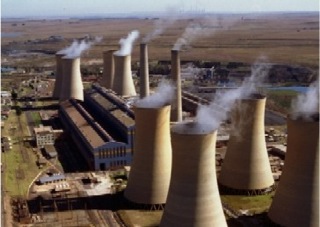 Electricity parastatal Eskom wants a 45% tariff hike each year for the next three years.
Electricity parastatal Eskom wants a 45% tariff hike each year for the next three years.
“Let’s do the hike over three years, we’ll smooth it by 45% over the next three years,” Eskom CEO Jacob Maroga told a media briefing in Johannesburg on Tuesday.
Eskom’s tariffs were not at levels that they should be, he said. The current price of electricity was around 33c/kWh, which did not allow for the recovery of all Eskom’s prudently incurred costs and the building of reserves to sustain its asset base.
Eskom needed a price between 80c/kWh and 88c/kWh.
The tariffs also did not support Eskom’s capital expansion programme.
Eskom had the option of a once-off tariff increase that would entail an immediate 146% hike in 2010/11.
“This option would impact massively on the economy and on society and so we’ve looked rather at the smoothing option,” Maroga explained. “When we met with Nersa (National Energy Regulator of SA) last year, the … smoothing was seen as an accepted principle that needs to be applied.”
However, even if Eskom’s preferred “smoothed model” was given the green light by Nersa, the electricity parastatal would still face a cash shortfall of R30bn. “We will need to close that R30bn shortfall. At the moment we’re looking at it as a shortfall, but as we get into the next three years we want a solution to close that gap.”
If it had certainty on its tariffs Eskom could unlock more borrowing. “This application that we have made to Nersa serves as a transition to financial stability, it’s going to be painful but it’s an unavoidable adjustment for us to secure our future,” Maroga said.
The application was designed to ensure a continued supply of power and intended to set the foundations for a greener future, “which is the right thing to do”.
The application had also taken into account the country’s future capacity needs. By 2020 SA would need an additional 20 000MW of power.
According to Maroga, Nersa was expected to make its decision on the tariff increase early next year. “Then the new tariff would be implemented for Eskom customers from 1 April 2010, and for the municipalities from 1 July 2010.
“If we can crack this one it will be a bold transition from load shedding to security of supply and a certain future,” he said.
Eskom was engaged in tariff hikes to fund its R385bn, five-year expansion plan intended to avoid electricity shortages that closed the country’s mines for almost a week last year.
Maroga said Eskom had included in its application that a mechanism be found to mitigate the impact of the price hike on the poor. “The free basic electricity allocation is currently 50kWh and we have proposed that it be increased to 70kWh,” he said.
The additional cost for this would be funded within the industry, he said. — Sapa
Subscribe to our free daily newsletter




